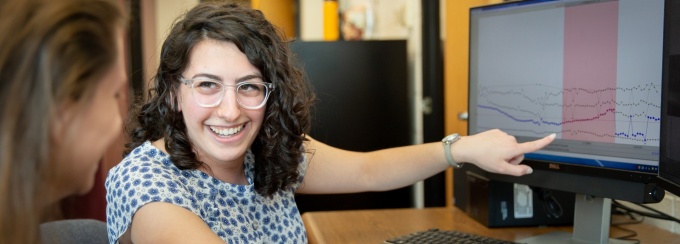Data Analytics for Social Sciences

Are you a social scientist with intellectual drive and curiosity, who wants to think more critically about the importance of data in your field? Our program will train you to apply a variety of methodologies to a social sciences discipline of your choice.
Data analytics in the social sciences refers to the application of data analysis techniques and statistical methods to study social phenomena. Data analysts apply large datasets from sources like surveys, social media, census data, and more, to gain insights into human behavior, social trends, and societal patterns across different disciplines like sociology, psychology, political science, and economics.
Social sciences disciplines have seen new data analysis techniques emerge over the last 10 years, both in terms of the range of relevant statistical models and the range of data made available for hypothesis testing. We are training the next generation of social scientists to use computational tools to analyze social data and draw meaningful conclusions about complex social issues.
New for fall 2026: We are also offering a concentration and research experience in AI and Society.
UB offers two unique programs: an MS in Data Analytics in Social Sciences (36 credits), and an Advanced Certificate in Data Analysis for the Social Sciences (18 credits).
DASS combines coursework and learning opportunities from our social sciences departments at UB: Sociology, Linguistics, Psychology, Geography, Anthropology, Communication, Political Science and Economics. This provides students with a truly interdisciplinary approach to data analysis by exposing them to research methods and trends across different areas of social science. By combining broad exposure to data analysis with expanded work in the discipline of your choice, you will graduate as a well-rounded candidate for professional opportunities or additional academic study.
Our ultimate goal is provide students with:
- Statistical skills to analyze data
- Computational skills to manipulate or model data
- Knowledge of methods used in a social science of the student’s choice
- Hands-on experience in applying data analysis and modeling skills on a research project
Admissions guidelines for the MS and Advanced Certificate vary slightly, but overall, the admissions committee seeks motivated students with strong academic records, particularly in the social sciences.
New, current and prospective students should contact the DASS Graduate Program Coordinator with any questions regarding application process, enrollment, choosing an advisor, and student services:
Jennifer Mdurvwa
Director of Graduate Enrollment
DASS Program Coordinator
jmdurvwa@buffalo.edu
716-645-1391